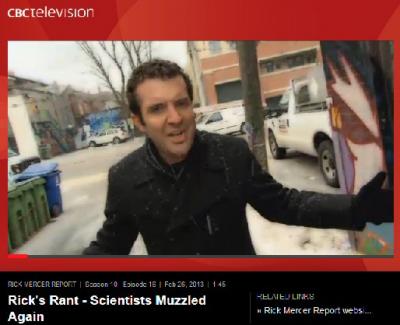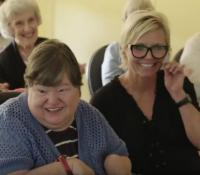You are only seeing posts authors requested be public.
Register and Login to participate in discussions with colleagues.
News Showcase
News Items
The courts will not save Canada's sick health system; Dr Day is not a gadfly
Public
The BC ruling, after grinding through the courts for a decade, is but a reminder that Canada's sick health care system will not be cured by its dysfunctional legal system. To expect our system to be saved by the courts amounts to, at best, magical thinking, while more and more Canadians who suffer in silence and risk dying from inability to access essential care will "just have to wait".
Understanding Generations X, Y, Z and more
Public
 Have you ever felt overwhelmed by the growing list of names for different generations; boomers, gen-X, millenials, zoomers and what follows? Here are a couple of links that may help.
Have you ever felt overwhelmed by the growing list of names for different generations; boomers, gen-X, millenials, zoomers and what follows? Here are a couple of links that may help.
Telehealth, what does it mean?
Public
 With tongue in cheek some might say it was about time we made more use of the tech we've got and now here we are all using telehealth. What does it mean? What does it look like? How does it work?
With tongue in cheek some might say it was about time we made more use of the tech we've got and now here we are all using telehealth. What does it mean? What does it look like? How does it work?
Society-changing infections - parallels to the polio epidemic of 1927
Public
Poliomyelitis – a.k.a. “The Crippler” or “infantile paralysis” - is a viral disease that primarily, and quite harmlessly, infects the gastrointestinal system. But if the poliovirus survives and is able to enter the bloodstream and nervous system it can cause damage to motor neurons in the spinal cord that connect the brain to muscles. Such damage interferes with muscle control, causing weakness or paralysis.
- Richard Merchant's blog
- Login or register to post comments
The Future of Psychiatry?
Public
Dr. Chris Sedergreen.
A highly respected psychiatrist has recently sent a letter to her patients announcing her decision not to return to clinical practice. I've known her professionally for over 15 years and can attest that her departure will leave a gap in her patient's lives that will be almost impossible to fill.
Will we see changes to copyright laws in Canada?
Public
 2019-06-21 Vancouver, BC
2019-06-21 Vancouver, BC
Canadian copyright laws were updated in 2012. Now, in 2019, two Canadian Parliamentary Standing Committees delivered reports with recommendations on changes to copyright laws in Canada.
Will we see any changes to the copyright laws in the near future?
What are ethics and why are they important?
Public
 2019-03-12 Dr Z.Essak, MD - Vancouver, BC
2019-03-12 Dr Z.Essak, MD - Vancouver, BC
Ethics are a big part of our lives as principles that govern our actions. Doctors take an oath to serve the patient's interest and not their own or that of others.
We expect ethical actions of people involved with our daily lives: teachers, accountants, professionals, merchants and others. It is the basis of the trust we have in them. We depend on them as people with privilege and power over ourselves, children and others.
It's not just ethics in medicine and health: it's ethics in politics, in technology, in corporations and the list goes on. People are growing more concerned about the decline of ethical leadership in politics and also business tech giants like Facebook, Google and others.
What happens when an individual's actions run contrary to ethical principles?
The late Dr Morris VanAndel, a well-respected GP and subsequent Registrar of the BC College of Physicians and Surgeons, reminded doctors in 2002 this way: "An ethical principle, by nature, is not modified by circumstances, regardless of the validity or justification of the reasons leading to the action."
Media depiction of Flu shot technique
Public
David Naismith (retired physician), Vernon BC, January 15, 2019.
On January 11th I was so disturbed by the portrayal of health professionals on TV, both in adverts and on the National, that I fired off an email to some colleagues. As usual, I learnt something as the thread progressed, so here is a distillate of that exchange.
"Cracked Science" light-hearted in-depth science for everyone
Public
 The youtube channel "Cracked Science" with Jonathan Jerry provides some good humour and scientific knowledge in ten minute episodes to bring you up to speed and get you thinking.
The youtube channel "Cracked Science" with Jonathan Jerry provides some good humour and scientific knowledge in ten minute episodes to bring you up to speed and get you thinking.
Take a look at CRISPR is a Puppy and learn how gene therapy may be applied to human diseases.
Another episode helps to debunk the media hype on the discovery of a new human organ - "the Interstitium, the largest organ we never knew we had", Does a New Organ Explain Acupuncture? While some of this is opinionated to the reporter's own views on acupuncture, the evidence of the Interstitium is a good reminder of what we already know.



 A talk on burnout in doctors at a recent conference in Vancouver provided good information and stimulated further exploration.
A talk on burnout in doctors at a recent conference in Vancouver provided good information and stimulated further exploration.
 Dr Z. Essak, MD - Vancouver BC - February 16, 2018
Dr Z. Essak, MD - Vancouver BC - February 16, 2018 Having worked for 40 years as a family physician in BC, when I heard the media announcements recently: that on April 3 vaccine mandates will be lifted on BC public service government workers but not on health care workers until it can become a permanent condition of work in health care, and that we may see only combined vaccines in the fall; it struck me that it’s time we had a real chat. This can’t wait.
Having worked for 40 years as a family physician in BC, when I heard the media announcements recently: that on April 3 vaccine mandates will be lifted on BC public service government workers but not on health care workers until it can become a permanent condition of work in health care, and that we may see only combined vaccines in the fall; it struck me that it’s time we had a real chat. This can’t wait. The College of Physicians and Surgeons of BC is looking to hire a new Deputy Registrar with the deadline for applications of April 30, 2015 fast approaching.
The College of Physicians and Surgeons of BC is looking to hire a new Deputy Registrar with the deadline for applications of April 30, 2015 fast approaching. There is a sleeping sickness throughout our land. It has found its way into health care and affected all the doctors. It is not some esoteric thing happening in some small political arena or lawyers club. This impacts all of BC and all of us: the ability of doctors to practice medicine the way they were taught and trained, according to their conscience and oath for the benefit of patients.
There is a sleeping sickness throughout our land. It has found its way into health care and affected all the doctors. It is not some esoteric thing happening in some small political arena or lawyers club. This impacts all of BC and all of us: the ability of doctors to practice medicine the way they were taught and trained, according to their conscience and oath for the benefit of patients. Dr Ian R. McWhinney was an English physician and academic who moved to the University of Western Ontario as the first chair of family medicine in Canada where he started the country's first Department of Family Medicine in 1968. He became known in Canada and around the world as the "Father of Family Medicine".
Dr Ian R. McWhinney was an English physician and academic who moved to the University of Western Ontario as the first chair of family medicine in Canada where he started the country's first Department of Family Medicine in 1968. He became known in Canada and around the world as the "Father of Family Medicine". A petition to repeal BC's Bill 36 - Health Professions and Occupations Act has already gathered more than 10,800 signatures. It was presented to the BC Parliament when the session resumed earlier this month. More signatures are still being collected and will be presented to the House later. It is already one of the largest petitions introduced to the BC Legislature.
A petition to repeal BC's Bill 36 - Health Professions and Occupations Act has already gathered more than 10,800 signatures. It was presented to the BC Parliament when the session resumed earlier this month. More signatures are still being collected and will be presented to the House later. It is already one of the largest petitions introduced to the BC Legislature.
